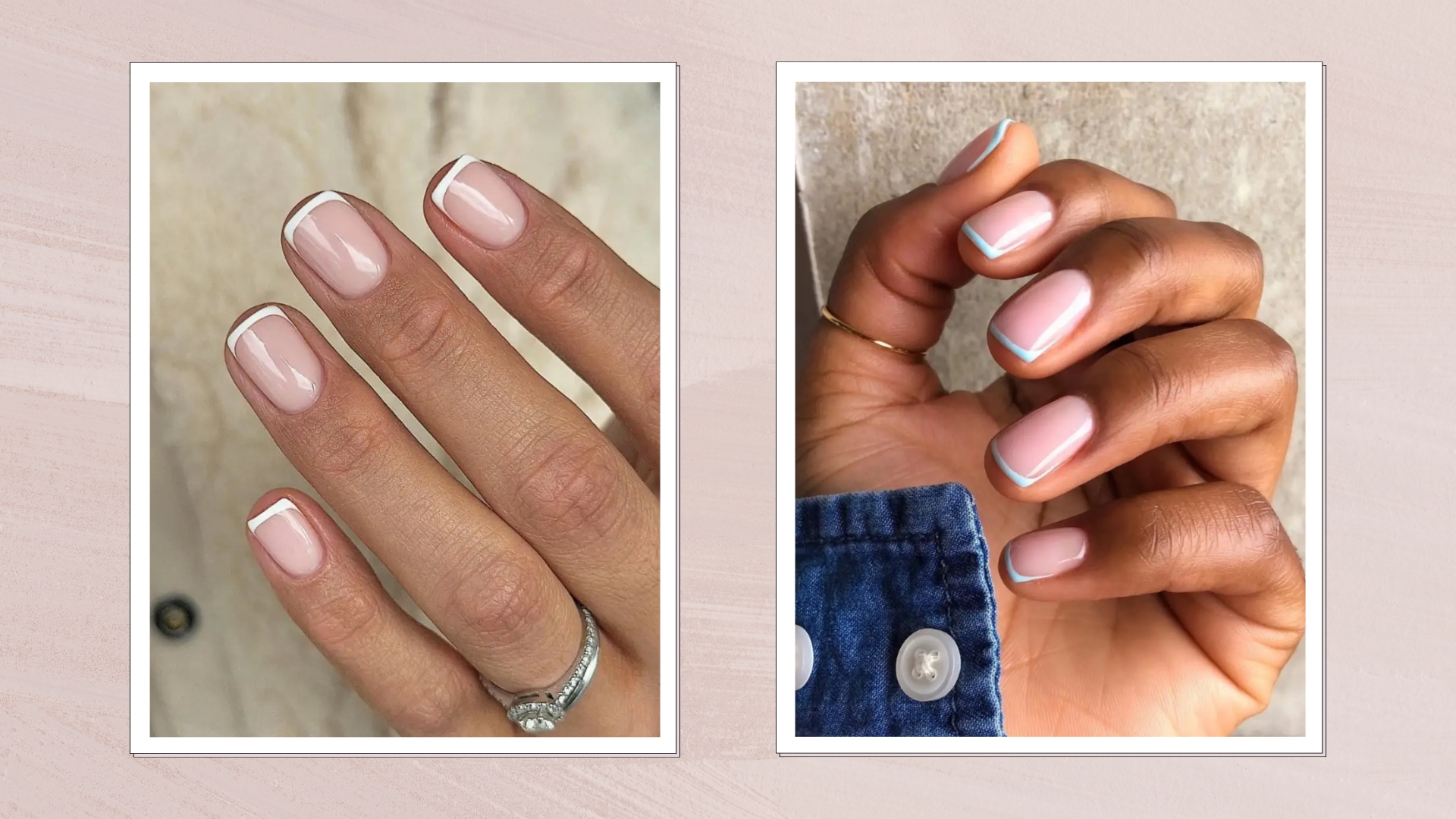Why does my face sweat so much? 6 common causes, revealed by the experts
Wondering why does my face sweat so much? There are several causes for the condition that have nothing to do with exercise - and they are all treatable, experts reveal


Why does my face sweat so much? In the summer, it's common to hear such a question. However, there are several reasons why you might be experiencing uncomfortable facial sweating year-round, made worse in the warmer months.
There are many causes of excessive sweating outside of exercise. Often, as this is the most common reason, we put the issue down to feeling too warm. However, the experts are quick to point out several bodily processes control this essential function. If one of them is having an issue, chances are, you'll feel it.
Here, woman&home speaks to a superintendent pharmacist and a hormone specialist to reveal all the common causes of facial sweating and what you can do about it.
Why does my face sweat so much?
1. Primary Hyperhidrosis
Primary hyperhidrosis is one of the main conditions that causes excessive sweating around the face outside of exercise. "It's the result of defective nerve signals that cause the eccrine sweat glands to work overtime. There is no medical reason for it, although it can be hereditary," says Sobia Qasim, a superintendent pharmacist with over 14 years of experience.
If this is the cause of the sweating, you'll likely experience heavier sweating than normal in other body areas too, such as the armpits, hands, and feet.
Dedicated prescribing pharmacist with over 14 years of experience, I have a passion for optimising patient care and improving health outcomes through evidence-based practice. Experience in providing comprehensive medication management services to diverse patient populations across various healthcare settings.
2. Secondary hyperhidrosis
Secondary hyperhidrosis is the other type of hyperhidrosis and it is caused by a medical condition or another reason, "such as a side effect of medication like anti-depressants, pain relief, and hormone treatment," says Qasim, who works with Curely.co.uk.
3. Perimenopause
Perimenopause is the name given to the lead-up to menopause, which is the one day 12 months after your last period. It's a stage that comes with many menopause symptoms and sweating is one of them, unfortunately.
Sign up for the woman&home newsletter
Sign up to our free daily email for the latest royal and entertainment news, interesting opinion, expert advice on styling and beauty trends, and no-nonsense guides to the health and wellness questions you want answered.
"Throughout menopause, the body experiences a decline in oestrogen and progesterone, which impacts the hypothalamus, the part of the brain that regulates body temperature. As a result, hot flashes and night sweats occur, which can make facial sweating worse," Qasim says.
Facial sweating caused by menopause can be significantly worse in the warmer months, notes hormone expert Mike Kocsis, given the double whammy of rising temperatures and perimenopause symptoms. "The body and brain have to work harder to regulate core temperature as the body retains more heat," he says. "This disrupts the normal temperature regulation processes already affected by hormonal fluctuations, triggering more frequent and severe hot flashes."
He says, "Higher humidity levels can also make it harder for sweat to evaporate from the skin, reducing the body's ability to cool down, and adding to the hormonal confusion."
Mike Kocsis is an expert on hormones, with over 20 years in the healthcare sector and much of this time working with people who have hormone imbalances. He is also the medical case manager for Balance My Hormones.
4. An overactive thyroid
The thyroid gland is butterfly-shaped and sits just in front of the windpipe in the neck. While small, it plays the important role of producing hormones that regulate body functions like heart rate and temperature.
"An overactive thyroid produces excess hormones that lift the body's metabolism and increase heart rate, which can lead to excessive sweating," says Qasim.
If you think you may have an overactive thyroid, with other symptoms including mood swings, swelling in your neck, sleeping difficulties, and tiredness, speak to your doctor as soon as possible. This is a condition that requires medical treatment.

Spicy and hot foods is one of the many causes of excessive facial sweating.
5. Lifestyle factors
Lifestyle factors like smoking, alcohol consumption, eating habits, and mental health conditions like anxiety can also all cause excessive facial sweating.
Studies have even shown that smoking increases hot flushes. "Nicotine acts as a stimulant, affecting the nervous system and interfering with the body's natural temperature regulation," says Kocsis, who works with Balance My Hormones. "Research from Columbia University School of Public Health suggests that smoking also accelerates oestrogen decline, so quitting can slow it down, providing relief from the symptoms."
6. Vitamin deficiency
It's not news that the vitamins and minerals in our diet play an integral role in how our body works, so having a deficiency in any of these can cause problems - including excessive facial sweating.
"It can be an early sign of vitamin D deficiency as low vitamin D levels can disrupt thermoregulation, causing a person to sweat, particularly on the head and face," says Kocsis. "It can also be a sign of magnesium deficiency. This mineral plays an instrumental role in the nervous system - especially the autonomic nervous system, which dictates the function of involuntary actions, such as sweating."
"If the body is low in magnesium, it can cause the sympathetic nervous system to work overtime," he says. This can trigger what is known as the 'fight or flight' response, which in turn will have symptoms like increased sweating on the face as the response triggers the release of cortisol - the stress hormone. Sweating is just one sign of high cortisol levels.
How can I stop my face from sweating?
- Diet: A dietary approach is a good first step when learning how to control sweating. "Avoid consuming spicy foods, caffeine, and alcohol as all stimulate sweat glands and encourage sweating. Drinking plenty of water will also ensure the body temperature stays cool," says the pharmacist.
- Witch hazel: This medicine cupboard staple can be one short-term way to manage excessive facial sweating. "Witch hazel can reduce the amount of sebum the skin's pores produce and minimise sweating. It also reduces the skin's pores generally and so suppresses sweat gland activity," she says.
- Mindfulness: While some causes of facial sweating will need to be solved by a doctor, you can lower high cortisol levels with mindfulness techniques, which may help. "Practicing techniques that lower the stress hormone cortisol such as meditation, yoga, and mindfulness can help deter stress-induced sweating," she says.
- Exercise: Even though exercise causes sweating, if harnessed in the right way, it can be a way to solve facial sweating. "Keep outdoor workouts to the mornings, before temperatures get too high. Not only will this help with keeping your body temperature lower, but it can also help regulate your circadian rhythm, improving your sleep quality," says Kocsis. You could also try exercise snacking - small bouts of exercise throughout the day, rather than all at once.
Is it healthy for the face to sweat?
For most people, sweating is a healthy body response. "It's the process the body uses to cool itself," says Qasim. "As body temperature rises, the nervous system sends a signal to the skins sweat glands to release moisture to provide a cooling effect," she says.
However, "if a person finds they severely sweat or that the excessive sweating is localised [to the face, for instance] it can signal an underlying health condition," he notes.
When to be concerned about facial sweating
How often a person sweats and the amount they sweat is prescriptive to them. If a person feels that they are sweating more than usual for a significant amount of time, then they may wish to seek medical attention, says the pharmacist.
Options are available, adds Kocsis. "Approximately 80% of people in perimenopause experience hot flushes, so you don't have to accept your fate. If your symptoms are impacting your life, talk to your doctor. They can discuss treatment options, from natural supplements to hormone replacement therapy (HRT), which can effectively manage hot flushes, night sweats, and other symptoms."

Grace Walsh is woman&home's Health Channel Editor, working across the areas of fitness, nutrition, sleep, mental health, relationships, and sex. She is also a qualified fitness instructor. In 2025, she will be taking on her third marathon in Brighton, completing her first ultra marathon, and qualifying as a certified personal trainer and nutrition coach.
A digital journalist with over seven years experience as a writer and editor for UK publications, Grace has covered (almost) everything in the world of health and wellbeing with bylines in Cosmopolitan, Red, The i Paper, GoodtoKnow, and more.
-
 We're in awe of Sienna Miller's easy-going and 'piece-y' hairstyle and how perfect it is for spring
We're in awe of Sienna Miller's easy-going and 'piece-y' hairstyle and how perfect it is for springThis laid-back hairstyle is - quite literally - making waves this season
By Naomi Jamieson
-
 We never thought we'd see this 'dated' manicure make a chic comeback, but here it is - and we're on board
We never thought we'd see this 'dated' manicure make a chic comeback, but here it is - and we're on boardClean and angular, short square French tips are a go-to this season for a practical but stylish manicure...
By Naomi Jamieson